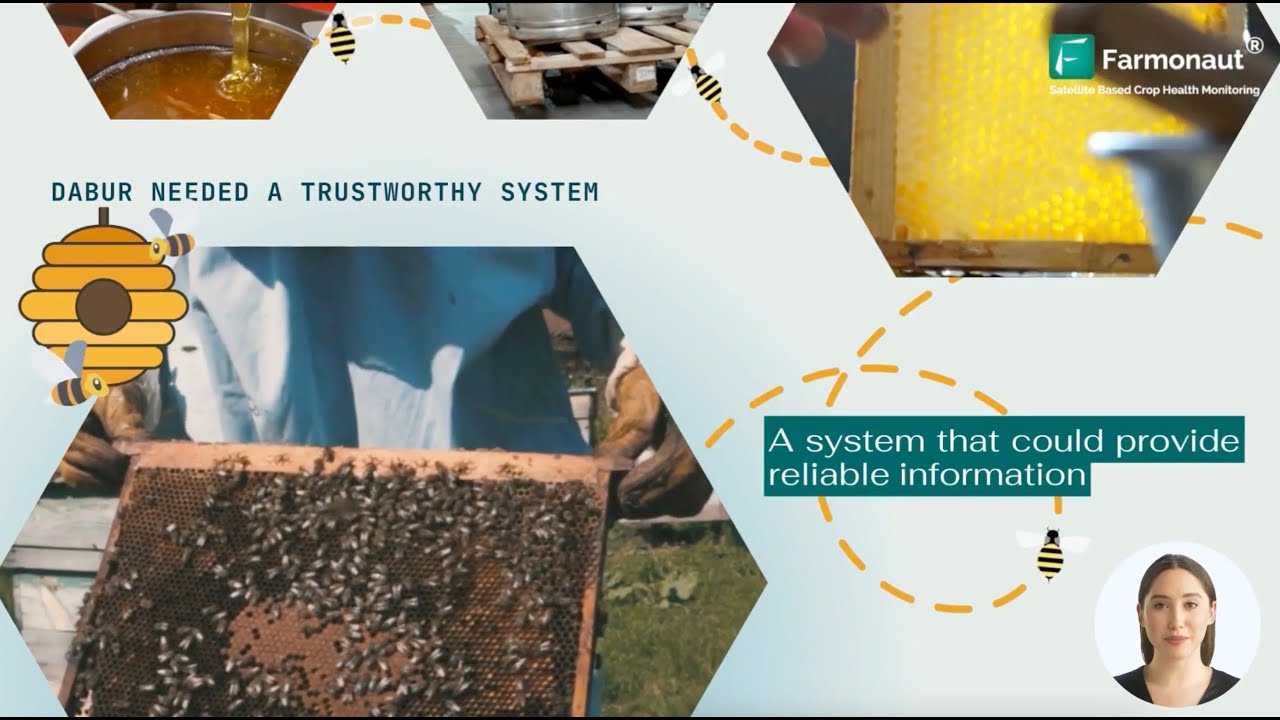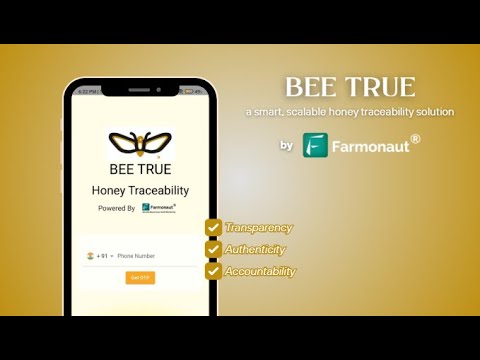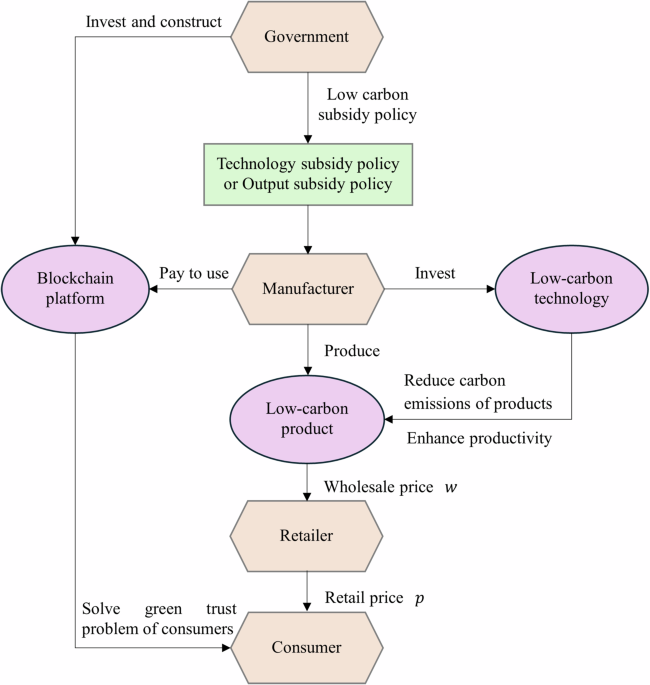Blockchain Technology In Farming: 7 Traceability Tips

“Over 20% of global agribusinesses plan to adopt blockchain for traceability by 2025.”
Introduction: The Power of Blockchain Technology in Farming
Agriculture is undergoing a digital revolution — and blockchain technology is at its crest. Originally the underlying framework for cryptocurrencies like Bitcoin, blockchain now powers transformative solutions across various industries, including agriculture, farming, and forestry. Its decentralized, immutable nature delivers unmatched transparency, security, and traceability across the entire agricultural supply chain.
In this comprehensive guide, we delve into how blockchain in agriculture is modernizing the sector, present seven actionable traceability tips, and demonstrate how platforms like Farmonaut’s blockchain traceability are making robust tracking and verification affordable and scalable.
Understanding Blockchain in Agriculture

At its core, blockchain is a distributed ledger technology that securely records transactions across a network of computers, ensuring data integrity and security.
In the context of agricultural operations, every transaction—whether it is planting seeds, harvesting, handling produces, or delivering products—is recorded in an immutable, tamper-resistant, and transparent manner.
- Decentralized: No central authority controls the agricultural data; it’s distributed across all participants.
- Transparent: Every stakeholder (farmers, supply chain partners, consumers) can access authorized chain data for full traceability.
- Immutable: Once recorded, information cannot be altered or deleted, guaranteeing authenticity and data confidence.
This unique combination of transparency, speed, and security addresses challenges that have plagued traditional agriculture: lack of trust, data silos, slow transactions, and food fraud.
Key Applications of Blockchain in the Agricultural Supply Chain
Blockchain’s applications in agriculture extend far beyond cryptocurrencies. It is powering next-gen solutions for food traceability, transparent supply chains, quality assurance, smart contracts in farming, and certification. Explore these foundational use cases:
-
Enhancing Supply Chain Transparency & Traceability
By recording every step, from farm to table, blockchain enables businesses and consumers to trace the origin and handling of food products. The result: food authenticity verification, fraud prevention, and elevated consumer trust. -
Streamlining Quality Assurance & Certification
Standardizing documentation of organic and sustainable farming practices using blockchain makes certification simpler, faster, and more trustworthy—appealing to eco-conscious consumers and upholding environmental standards. -
Introducing Smart Contracts and Automated Payments
Smart contracts automate transactions, guaranteeing timely, fair payments and reducing dependency on intermediaries. This increases operational efficiency and supports farmer financial inclusion. -
Expanding Access to Financial Services
Digitally recorded production data enables more accurate financial verification for smallholder farmers, helps secure loans, and opens up insurance platforms. -
Monitoring and Verifying Sustainable Practices
By immutably recording sustainability efforts, farms can earn carbon credits and validate their commitment to environmental standards. -
Modernizing Crop Insurance and Risk Management
Blockchain-based insurance platforms deliver timely compensation in response to adverse weather events or natural disasters using smart, data-driven triggers. -
Boosting Inventory and Resource Management
Real-time inventory tracking, powered by blockchain, matches supply with demand more **effectively**, helping prevent loss and reduce **waste**.
7 Blockchain Traceability Tips for Modern Farming

1. Digitize Farm Data & Transactions from Day One
Start with digital record-keeping! Capture every transaction—planting, harvesting, transport, and sale—on a blockchain platform as early as possible.
This creates an unbroken, traceable record from seed to final consumer, strengthening farm to table traceability and ensuring your product’s story remains transparent and secure.
2. Leverage Smart Contracts in Farming for Automation
Smart contracts in farming automate agreement execution—invoicing, payment releases, shipping confirmation—triggered by verified data (e.g., crop delivery, certified standards met).
- Minimizes payment delays, supporting timely compensation for farmers
- Ensures clear terms and reduced reliance on intermediaries
- Helps automate and speed up cross-border payments for global supply chains
Integrated smart contracts are a core feature in many blockchain-powered supply chain traceability products, increasing efficiency and trust throughout the chain.
3. Ensure Consistent, Standardized Data Collection
Blockchain’s robustness relies on accurate, standardized data inputs. Implement clear protocols on:
- Capturing crop quality, location, date, and ownership at every handling stage
- Using digital sensors, satellite imagery or mobile apps for data management
- Farmonaut platform ensures satellite data, crop health scores, weather updates, and production milestones are entered consistently and securely
Uniform and secure data collection makes agricultural blockchain solutions highly effective for traceability and transparency.
4. Prioritize End-to-End Transparency for Food Authenticity Verification
Blockchain makes product authenticity verification simple and credible—essential for combating food fraud in markets like coffee, olive oil, honey, and organic produce. Enable stakeholders (including consumers) to scan QR codes and instantly trace the origin and journey (from farm through processing and delivery).
- Builds strong consumer trust and loyalty
- Addresses regulatory requirements for organic certification and labeling
- Enhances brand value for sustainable and fair trade products
To explore blockchain-based food and honey traceability, visit Farmonaut’s Traceability Page.
5. Adopt Blockchain-Backed Crop Insurance Platforms
Traditional crop insurance often results in complex claims and delayed compensation. By using blockchain crop insurance integrated with weather and satellite data, claims can be verified and paid out almost instantly—and all claim records are permanently available.
- Provides risk reduction and financial resilience for farmers
- Smart contracts approve timely, fair, automatic payouts on objectively verifiable weather or yield events
- Minimizes administrative costs for insurers and platforms
For advanced insurance validation and premium management solutions, see Farmonaut Crop Loan and Insurance.
6. Implement Carbon Footprinting and Sustainable Farming Practices
Modern consumers, regulators, and procurement partners increasingly demand proof of sustainable agricultural practices. Blockchain provides credible tracking for:
- Recording & verifying sustainable practices (e.g., reduced fertilizer use, organic production, conservation farming)
- Issuing traceable carbon credits based on immutable records
- Reporting environmental impact to global and local stakeholders
Leverage blockchain to meet carbon neutrality targets—Farmonaut Carbon Footprinting provides satellite-verified carbon emissions tracking and compliance reporting.
“Blockchain can reduce food supply chain fraud by up to 30%, ensuring safer, more transparent farming practices.”
7. Facilitate Smallholder Farmer Technology Inclusion and Data-Driven Credit Scoring
Many developing regions lack clear asset records and financial data, barring farmers from insurance or credit. With blockchain:
- Farmers’ production history, yields, practices, and input use are securely recorded
- Credit agencies or insurers can objectively assess creditworthiness without needing collateral
- Enables financial inclusion for millions of smallholder farmers
To empower every scale of grower, Farmonaut provides accessible precision tools and data-driven credit verification to create a smarter, more inclusive agricultural future.
Blockchain Traceability Benefits in Agriculture – Before and After Implementation
| Traceability Aspect | Traditional Method (Estimated) | Blockchain-Enabled Method (Estimated) | Impact on Farming |
|---|---|---|---|
| Product Tracking | Manual, paper-based, risk of loss/duplication | Digital, immutable, real-time via distributed ledger | Transparency, speed, accuracy boosted |
| Data Accuracy | Susceptible to errors, inconsistent formats | Standardized, validated, tamper-proof | Reduces disputes, simplifies audits |
| Fraud Prevention | Easy to falsify records, detect late | Immutable records, instantly verifiable | Minimizes fraud, protects reputation |
| Supply Chain Transparency | Opaque, slow to share data, hard to verify | All participants see live, shared data | Builds trust, supports certification |
| Recall Response Time | Days to weeks (manual cross-checking) | Minutes (QR scan, instant trace) | Reduces losses, enhances safety |
| Consumer Trust | Limited; information not easily accessible | High; full journey visible on demand | Drives sales, enables premium pricing |
| Sustainability Tracking | Ad-hoc, unverifiable claims | Documented proof of sustainable practices | Enables carbon credits, supports green branding |
Benefits of Blockchain in Agriculture: Why Adoption is Accelerating
- Reduced Operational Costs: Automation, streamlined processes, and reduced intermediaries cut transaction fees and inefficiencies.
- Increased Farmer Empowerment: Blockchain solutions help farmers control their data, products, and supply chain relationships.
- Enhanced Consumer Confidence: Verifiable origin, handling methods, and food safety raise buyer trust and loyalty.
- Improved Inventory Management: Real-time data feeds allow accurate on-farm and global inventory management.
- Faster Recall & Compliance: Easy product tracing means rapid recall in case of contamination or non-compliance.
- Boosts Sustainable Practices: Sustainability claims can be verified (not greenwashed), and carbon credits monetized.
To explore how blockchain can benefit your operations, check Farmonaut’s blockchain solutions:
Product Traceability |
Carbon Footprinting |
Plantation Management
How Farmonaut Accelerates Blockchain Adoption in Agriculture
At Farmonaut, we are dedicated to making advanced agricultural technology accessible and affordable for farmers and agribusinesses across the globe.
Our approach seamlessly integrates blockchain-based traceability solutions with satellite AI and resource management tools to solve the most pressing sector challenges:
- Affordable Precision Agriculture: Our satellite monitoring delivers accurate crop and resource data without costly hardware investments, helping farmers of all sizes manage their operations more sustainably.
- Comprehensive Traceability: We enable transparent, tamper-proof tracing of produce, supporting regulatory compliance and consumer demands for traceable organic products and safe food.
- Blockchain-Based Data Management: We ensure that your data flows—from planting to harvesting, to transport—are securely recorded for audits, insurance, loans, and certifications.
- Resource and Fleet Optimization: With our Fleet Management tools, businesses can track vehicle, labor, and input usage in real time, reducing waste and cost.
- Sustainability & Carbon Tracking: Our platform’s carbon tracking features help agricultural businesses demonstrate their commitment to global climate targets.
- Technology Inclusion for Smallholders: By making satellite and blockchain innovations mobile-accessible and easy to use, we ensure inclusive and equitable technology adoption, especially in developing markets.
- Scalable & Flexible: Serving everyone from individual farmers to governments, our modular tools can scale as your organization grows.
Get started with Farmonaut’s subscription plans below for innovative technology in farming:
Challenges & Considerations in Blockchain Technology Adoption
The adoption of blockchain in agriculture is not without its hurdles. Recognizing these challenges can guide effective planning and platform selection:
- Technical Knowledge Gap: Many agricultural producers, especially in developing countries, have limited familiarity with blockchain technology. Progressive training and user-friendly tools (like Farmonaut’s platform) are essential for successful onboarding.
- Data Standardization Issues: The lack of unified agricultural data standards can hinder interoperable blockchain systems. Efforts are ongoing to create global protocols for food chain data integrity.
- Infrastructure & Cost Barriers: Initial investment in blockchain infrastructure—software, connectivity, integration—can be substantial, making affordable platforms and partnerships vital for smallholder inclusion.
- Scalability & Network Effects: Blockchain solutions are most effective when widely adopted across the value chain, requiring buy-in from farmers, processors, logistics, retailers, and governments.
- Regulatory Uncertainty: Emerging data and privacy laws can influence the architecture of blockchain solutions for farming, so compliance-readiness is a must.
Despite these hurdles, catalysts like affordable mobile apps, low-code large-scale farm management platforms, and global food security initiatives are accelerating adoption—especially among organizations seeking transparent, sustainable growth.
Frequently Asked Questions (FAQ) – Blockchain in Agriculture
What is blockchain technology in farming?
Blockchain technology in farming utilizes a distributed ledger to record agricultural transactions securely and immutably. Every farming step, from seeding to product delivery, is traceable and verifiable for greater transparency, efficiency, and trust.
How does blockchain enhance agricultural supply chain transparency?
By making all recorded data immutable and instantly accessible to authorized stakeholders, blockchain exposes every product’s journey and handling, thereby preventing fraud, ensuring food authenticity verification, and helping consumers make informed purchases.
Is blockchain technology affordable for smallholder farmers?
With scalable, cloud-based solutions like Farmonaut’s platform, blockchain-enabled traceability and data management are now accessible and economical, even for small and medium-sized farms.
What role does blockchain play in food safety?
Blockchain’s real-time product tracking allows instant recalls and root cause analysis in case of contamination, boosting food safety and consumer confidence.
How can blockchain technology help with sustainable farming practices?
By transparently documenting every sustainable action—reduced water use, organic input, emissions reductions—blockchain allows verifiable sustainable farming, enabling access to green markets and carbon credits.
Does Farmonaut provide blockchain APIs for custom software integration?
Yes, you or your business can leverage Farmonaut’s API and Developer Docs to access satellite, weather, and blockchain-based agricultural data for traceability, insurance verification, and inventory management use cases.
Conclusion & Adoption Resources
Blockchain is reshaping the future of agriculture by providing solutions for age-old challenges: traceability, transparency, authentication, and sustainable management. The journey from farm to table is now recorded and easily traceable—enhancing trust among all parties, reducing fraud, and facilitating sustainable production for a climate-resilient future.
- Farmers can receive fair compensation and access modern financial services.
- Consumers confidently choose safe, traceable organic products.
- Businesses and governments align with global standards for food integrity and sustainability.
Whether you are a smallholder farmer, an agribusiness, or a policy maker, adopting blockchain technology in agriculture is now practical and scalable—especially with robust platforms like Farmonaut facilitating the transition.
Interested in strengthening transparency and traceability in your farming? Get started with Farmonaut’s mobile and web apps here.
link










